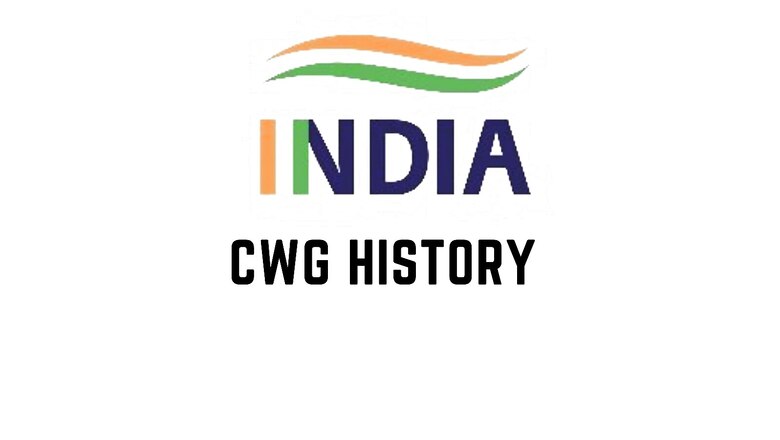
views
Even though India’s early campaigns at the Commonwealth Games also known as the British Empire Games and the British Empire and Commonwealth Games in its early iterations were largely uneventful, the country has now emerged as a major force in sports in the Commonwealth. From a solitary medal in its first appearance at the 1934 Games in London – won by wrestler Rashid Anwar, India has a total of 503 medals at the Games so far with 181 gold, 173 silver and 149 bronze. Their best ever showing remains and a second-place finish at their home Games in New Delhi in 2010 while in the last edition at Gold Coast, India finished third with a tally of 26 gold, 20 silver and 20 bronze medals. Overall, India is 4th in terms of gold medals won in the history of the games behind Australia, England and Canada.
As India embarks on yet another Commonwealth Games, this time in Birmingham, England on the back of a memorable Tokyo Olympics, we take a look back at India’s glorious history at the Games.
1930 – Canada, Hamilton – Did not participate
1934 – England, London (Gold 0 | Silver 0 | Bronze 1 | Total 1 | Standing 12th)
India participated for the first time in the 1934 British Empire Games and won a bronze medal. A group of only six Indian athletes participated in the year 1934. Moreover, they participated only in athletics and wrestling disciplines. India won its first-ever medal in the Commonwealth Games in wrestling by Rashid Anwar (Bronze) in Men’s Welterweight Division (74 kg).
1938 – Australia, Sydney
The 1938 British Empire Games were the third British Empire Games, the event that grew into the Commonwealth Games later. The event took place in the city of Sydney in New South Wales, Australia, and was held from February 5th to February 12th, 1938. India participated in the Commonwealth Games for the second time after the British Empire Games in London in 1934. Indian athletes participated in a few events, however, this time track cycling was added to the edition and India was mainly interested in participating in this new sport. The country however could not win a single medal in these Games.
1950 – New Zealand, Auckland – Did not participate
1954 – Canada, Vancouver
This was India’s third appearance at the British Empire and Commonwealth Games. Previous Games in New Zealand were not attended by India. India took part in a small number of events this time as well, primarily in athletics. The 1954 Games, which were held in Canada, will be remembered for the contest between Australian John Landy and Englishman Roger Bannister. India participated in the 1954 Games for the first time as a free nation. India, however, was eliminated from the medal count.
1958 – Wales, Cardiff (Gold 2 | Silver 1 | Bronze 0 | Total 3 | Standing 8th)
The 1958 Commonwealth games, back when it was still called “The British Empire and Commonwealth Games" marked India’s 4th outing as they appeared in Cardiff, Wales. The Indian contingent included athletes, boxers and wrestlers all fighting it out for the top honours in their respective disciplines. This edition of the games was also one of the ‘firsts’ for India as it marked India’s first participation in boxing, and India won its first-ever gold medal at the Games as the Legendary “Flying Sikh", Milkha Singh won the men’s 440 yards event. Stephanie D’Souza and Elizabeth Davenport also made history by being the first-ever women to represent India at the CWG by participating in track and field events. Wrestlers also bagged medals as Lila Ram picked up India’s second gold in men’s Heavyweight wrestling and Lachmi Kant Pandey won a silver medal in the men’s welterweight event. India ended the Cardiff 1958 campaign with 3 medals securing the 8th place finish overall.
1962 – Australia, Perth – Did not participate
1966 – Jamaica, Kingston (Gold 3 | Silver 4 | Bronze 3 | Total 10 | Standing 8th)
This was the 5th time India participated in Commonwealth Games. India participated in most of the sports, involving; Athletics, Badminton, Boxing, Weightlifting and Wrestling. India managed to earn 10 medals in total with 3 Golds, 4 Silver and 3 Bronze. Wrestlers led from the front here also with five of the total 10 medals for India coming in wrestling. Bishamber Singh (Bantamweight), Mukhtar Singh (Lightweight) and Bhim Singh (Heavyweight) won gold medals. India added medals in Weightlifting (Mahon Ghosh – Featherweight), Badminton (Dinesh Khanna – Men’s Singles) and Hammer throw (Praveen Kumar)
1970 – Scotland, Edinburgh (Gold 5 | Silver 3 | Bronze 4 | Total 12 | Standing 6th)
India finished 6th in the 1970 Commonwealth Games which were hosted by Scotland for the first time. It was the 6th time India participated in the game and won 12 medals in total. Interestingly, India clinched 9 out of the 12 medals alone from wrestling in various categories, including 5 Gold, 3 Silver, and 1 Bronze. Ved Prakash, Sudesh Kumar, Udey Chand, Mukhtiar Singh, and Harishchandra Birajdar won gold. Sajjan Singh, Bishwanath Singh, and Maruti Mane won silver. A single bronze medal was won by Randhawa Singh. The other 3 bronze medals came from boxing (Shivaji Bhonsle in 67kg – Men), weightlifting (Alexander Navis in 60kg Combined – Men), and athletics (Mohinder Singh Gill in Triple Jump – Men).
1974 – New Zealand, Christchurch (Gold 4 | Silver 8 | Bronze 3 | Total 15 | Standing 6th)
India took part in the Commonwealth Games for the seventh time this year. India finished with six medals. After the terrorist assault at the Olympic Games in Munich, New Zealand held its second Games with the highest level of security. The Games were successful despite the presence of fear. In New Zealand, Indian wrestlers maintained their “Golden Touch." In separate categories, Sudesh Kumar, Prem Nath, Jagrup Singh, and Raghunath Pawar each took home four gold medals. Radhey Shyam won bronze, followed by Shivaji Chingle, Satpal Singh, Netra Pal Singh, Dada Chaugule, and Bishwanath Singh. Weightlifting silver medalist Anil Mandal. Chandra Narayan won silver in boxing, and Muniswami Venu ended up winning bronze.
1978 – Canada, Edmonton (Gold 5 | Silver 4 | Bronze 6 | Total 15 | Standing 6th)
In 1978, The British Commonwealth Games was renamed to what we are familiar with today, The Commonwealth Games. Hosted by Canada in the city of Edmonton, India made their 8th appearance at the Games with a contingent of Inspirational badminton players, Wrestlers, Weightlifters, Boxers and Athletics participants who all helped in achieving a 6th place finish. Prakash Padukone inspired a generation of future shuttlers as he picked up India’s first-ever Gold medal in Badminton, beating Englishman Derek Talbot in the Finals. Ami Ghia and Kanwal Singh scored bronze for the Women’s doubles in Badminton to become India’s first-ever women medal-winners at The CWG. Birender Thapa won a bronze medal in boxing adding to India’s 15 medal haul. It was the wrestling and weightlifting segments, however, that India picked up the most medals in, 11 in total. Wrestlers Ashok Kumar, Satbir Singh and Rajinder SIngh all won gold medals, Weightlifter Ekambaram Karunakaran also scored the top prize, contributing to India’s 6th place overall finish at Edmonton 1978.
1982 – Australia, Brisbane (Gold 5 | Silver 8 | Bronze 3 | Total 16 | Standing 6th)
The 9th time India participating in Commonwealth Games and this time India ranked 6th in the medal tally. Total 16 Medals were gained by the Indian contingent with 5 Golds, 8 Silver and 3 Bronze. As had been the case in previous editions, wrestlers bagged the biggest haul for India claiming 4 Gold, 4 Silver and one Bronze medal. Ram Chander Singh (Light Flyweight), Mahabir Singh (Flyweight), Jagminder Singh (Lightweight) and Rajinder Singh (Welterweight) won gold in wrestling while the legendary Syed Modi won India’s second ever gold medal in Badminton – men’s singles. Weightlifters bagged 3 Silver medals and shooters also won India’s its first commonwealth medal at this Games with the duo of Mohinder Lal and Ashok Pandit win silver in 25m Center-Fire Pistol – Pairs while Sharad Chauran and Ramakrishnan Vijay bagged bronze in 25m Rapid-Fire Pistol – Pair. India added medals in Boxing (Chenanda Machaiah – Bronze),
1986 – Scotland, Edinburgh – Did not participate
1990 – New Zealand, Auckland (Gold 13| Silver 8 | Bronze 11 | Total 32 | Standing 5th)
In total, 54 nations competed at the Commonwealth Games hosted by New Zealand where Australia dominated with 164 medals. This was the 10th time India participated in the Commonwealth Games and it was ranked 5th in the final medal tally. It had been India’s intention to host this edition, but it lost to New Zealand. However, India improved its performance and finished with 32 medals (13 Gold, 8 Silver, and 11 Bronze). Out of 13 gold medals, 12 were won in weightlifting alone. Ashok Pandit won the thirteenth gold for India in Shooting (Centre Fire Pistol – Men). India clinched 7 silver and 5 bronze as well in weightlifting. The remaining 7 medals were won in shooting, boxing, and judo, including one silver, won by Surinder Marwah in Centre Fire Pistol – Men. Wrestling was not included as a program for this games.
1994 – Canada, Victoria (Gold 6 | Silver 11 | Bronze 7 | Total 24 | Standing 6th)
This was India’s eleventh appearance at the Commonwealth Games. India placed sixth overall in the final medal count. For the 1994 Commonwealth Games, three bids were made – Cardiff, New Delhi, and Victoria. Two African nations contributed to the uniqueness of the Games. While Nigeria shocked everyone by finishing fourth at the medal table, everyone welcomed South Africa, which had been absent for 30 years due to apartheid. Indian weightlifters and shooters each won six gold medals. In pistol events, Jaspal Rana took home two victories. In the shotgun trap competition, Mansher Singh won the gold. Weightlifter Badathala Adisekhar earned two gold medals across several competitions, while Murgesan Veerasamy brought home India’s sixth gold. Indian athletes took home a total of 25 medals, including 12 silver and 7 bronze. India failed to bag even a single gold in wrestling and returned with a haul of two silver and three bronze medals.
1998 – Malaysia, Kuala Lumpur (Gold 7 | Silver 10 | Bronze 8 | Total 25 | Standing 7th)
The 1998 edition of The Commonwealth Games was a significant one for the CWG federation itself. Kuala Lumpur 1998 paved the way for the future by being the first ever Commonwealth Games to be held on Asian soil. Indian Shooters and Weightlifters stole the show at Kuala Lumpur 1998, Indian weightlifters swept up 8 medals – 3 Gold and 5 Silver. In the Shooting events, India scored 6 medals in total, 4 Golds and 2 Silvers as Roopa Unnikrishan became the first ever Woman Gold-medallist for India by winning the Women’s free rifle prone. India also scored medals in Boxing and Badminton, including a Silver in the Men’s Badminton Team event, which went with Kuala Lumpur 1998’s theme of more team sports being introduced like Netball, Hockey, Rugby 7s’ and Cricket. India featured a star-studded team for the first and only Men’s Cricket event ever to be held at the CWG, although, the team comprising of stars like Ajay Jadeja, Anil Kumble and Harbhajan Singh could not progress beyond the Group stage. India made their 12th appearance at The CWG and secured a stable 6th place finish, picking up 18 medals along the way, 7 Gold, 10 Silver and a Bronze.
2002 – England, Manchester (Gold 30 | Silver 22 | Bronze 17 | Total 69 | Standing 4th)
India participated in the 2002 Commonwealth Games in Manchester and improved its previous medal tally in leaps and bounds. The contingent bagged a whopping 430 gold, 22 silver and 17 bronze medals to finish 4th. The key highlight was the Indian women’s hockey team. The team entered the finals after defeating a formidable Australian women’s team. The Indian women went on to claim the gold beating the English in the final. This win also marked a comeback for Mir Ranjan Negi who coached the team. Negi’s involvement and the Gold inspired the successful 2007 Shahrukh Khan film about women’s field hockey, Chak De India. The record-setter Anju Bobby George won bronze in the long jump while Neelam Jaswant Singh added a silver in Discus throw. In Badminton Aparna Popal won a historic bronze in women’s singles. India added three medals in Boxing, two in Judo, and 22 in shooting – including gold medals for Sameer Ambekar, Abhinav Bindra, Jaspal Rana, Samresh Jung, Mahaveer Singh, Vivek Singh, Rajyavardhan Singh Rathore, Moraad Ali Khan, Charan Singh, Bhanwat Lal Dhaka and Mukesh Kumar in men’s and Anjali Pathak, Raj Kumari, Suma Shirur in women’s. India also bagged 33 medals in weightlifting with Kunjurani Devi leading the charge.
2006 – Australia, Melbourne (Gold 22 | Silver 17 | Bronze 11 | Total 50 | Standing 4th)
While over 5000 athletes participated in the 2006 Commonwealth Games, India was represented in Melbourne by a 270-member strong contingent comprising 183 sportspersons and 77 officials. Despite not being as impressive as the 2002 edition, India managed to win 50 medals and finish fourth. While athletes from India won 22 gold medals, 16 medals were led alone by shooters. They also clinched 7 silver and 4 bronze medals. Athlete Samresh Jung was named the winner of the inaugural David Dixon Award, which recognizes outstanding athletes at each Commonwealth Games. A total of seven medals were earned by Jung at the 2006 Games, 5 golds, 1 silver, and 1 bronze. In weightlifting, India won 3 gold, 5 silver, and a bronze. Geeta Rani, Kunjarani Devi Nameirakpam and Yumnam Chanu won a gold in different categories. Indian boxer Akhil Kumar succeeded in clinching gold in the Bantamweight category while Vijender Singh and Harpreet Singh won silver medals in Welterweight and Heavyweight categories. Two bronze medals were also won by Jitender Kumar and Varghese Johnson in boxing.
2010 – India, New Delhi (Gold 38 | Silver 27 | Bronze 36 | Total 101 | Standing 2nd)
The 2010 Commonwealth Games were held in Delhi, India, from October 3 to October 14, 2010. In 290 sessions, 17 sports and 4 para sports featured about 6,572 competitors and team officials. Ultimately, two new world records (in athletics and powerlifting) and 108 new Commonwealth records were established. India ended the Games in second place after Australia and 101 medals were won, including 38 gold medals. India brought home more than 100 medals in total, a first in the Games’ history. India won a medal in gymnastics, with Ashish Kumar taking home Silver and Bronze, adding to the list of “first times in the history of the Games".Geeta Phogat won gold in women’s wrestling, and and Krishna Poonia won the discus throw – giving India its first gold medal in athletics in 52 years. Shooting returned a rich haul of 30 medals out of which14 were gold, while wrestlers bagged 21 medals, including 10 gold. India also claimed medals in, Athletics, Archery, Table Tennis, Tennis, Gymnastics, Swimming Badminton and Hockey
2014 – Scotland, Glasgow (Gold 15 | Silver 30 | Bronze 19 | Total 64 | Standing 5th)
The 2014 Commonwealth games, held in Glasgow, marked India’s 16th appearance at the games. This edition was one Grandiose for India as Olympic Silver Medallist Vijay Kumar proudly led the 215-strong contingent around Celtic Park in Glasgow as the Nation’s flag bearer, India led the Glasgow 2014 opening ceremony by virtue of being previous hosts. The 215-member Indian contingent was the third largest at the event, with Netball, Rugby 7s and Triathlon being the only sports/disciplines out of 278 without a Tri-colour participation. After a 56-year wait, India once again scored a Gold medal in men’s Athletics as Vikas Gowda won the Men’s Discus throw event. Parupalli Kashyap also brought a long wait to an end as he won Gold in the Badminton Men’s Singles, 32 years after their last Gold in the sport. The Indian contingent broke yet another record as Joshna Chinappa and Dipika Pallikal won the country its first-ever Gold medal in Squash. Weightlifters, Wrestlers and Shooters also swept up a heavy haul of medals, all contributing to the total medal count of 64; 15 Gold, 30 Silver and 19 Bronze which led to India scoring 5th place in the overall Rankings.
2018 – Australia, Gold Coast (Gold 26 | Silver 20 | Bronze 20 | Total 66 | Standing 3rd)
India competed at the 2018 Commonwealth Games at Gold Coast, Australia from 4 to 15 April 2018. It was India’s 17th appearance at the Commonwealth Games. India finished 3rd in the tournament with 26 gold medals and 66 medals in total. It was India’s best position since the 2010 Commonwealth Games, which India itself hosted. PV Sindhu was the flag-bearer for India for this edition. Shooters claimed 16 medals while Wrestling added 12 and Weightlifting 9. Table Tennis added 8 medals while the Badminton contingent returned with 6 medals, including two gold medals. Track and field athletes bagged a total of 3 medals and we had a solitary medal from parasports as well. Neeraj Chopra won gold in men’s javelin at the age of 20 with a throw of 86.47m while Saina Nehwal claimed the gold in badminton women’s singles, defeating her compatriot Sindhu in the final. Kidambi Srikanth lost out to the legendary Lee Chong Wei in the final to claim silver. Boxers Vikas Solanki and Vikas Krishnan won gold in their respective categories while MC Mary Kom won her first CWG medal – a gold – in women’s 48 kg. In Shooting, Jitu Rai, Anish Bhanwala, Sanjeev Rajput, Manu Bhaker, Heena Sidhu, Shreyasi Singh, and Tejaswini Sawant won gold medals. In TT, Manika Batra reigned supreme in women’s singles while India swept the gold in both men’s and women’s team categories. In weightlifting, Sathish Sivalingam and Ragala Venkat Rahul won gold in their respective men’s categories, while women weightlifters claimed three golds – Mirabai Chanu, Sanjita Chanu and Punam Yadav. Wrestling continues to be India’s strongest suit and Rahul Awre, Bajrang Punia, Sushil Kumar, Sumit Malik and Vinesh Phogat claimed gold medals for India on the mat.
Read all the Latest News and Breaking News here










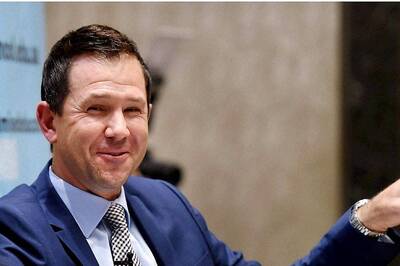


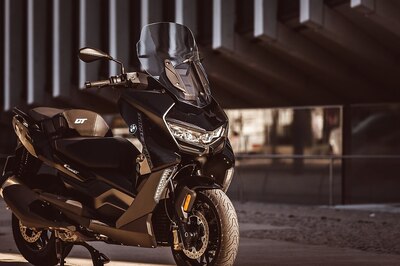
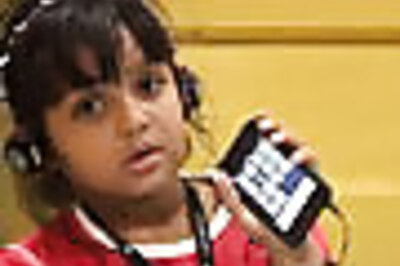
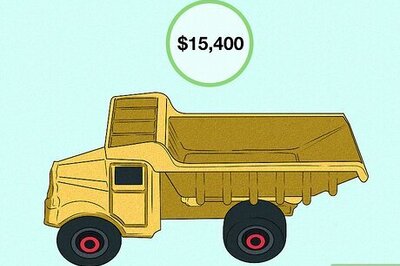



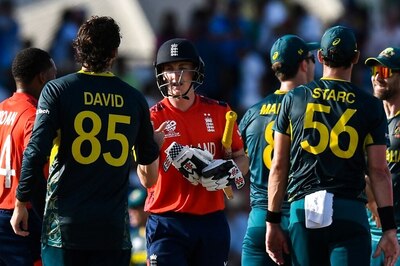
Comments
0 comment